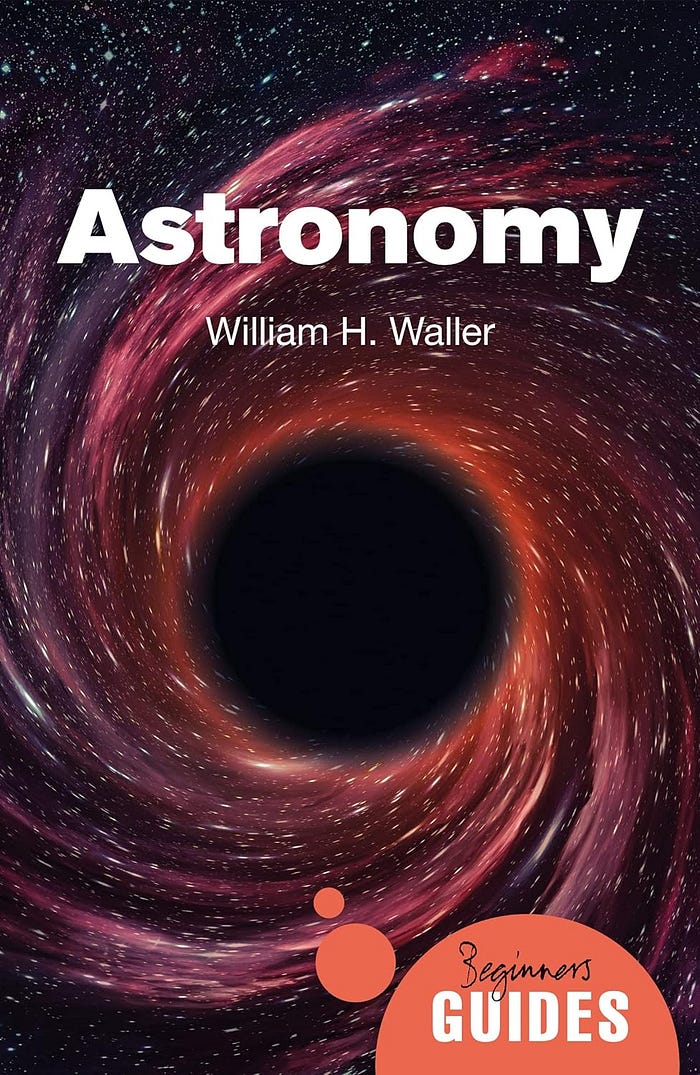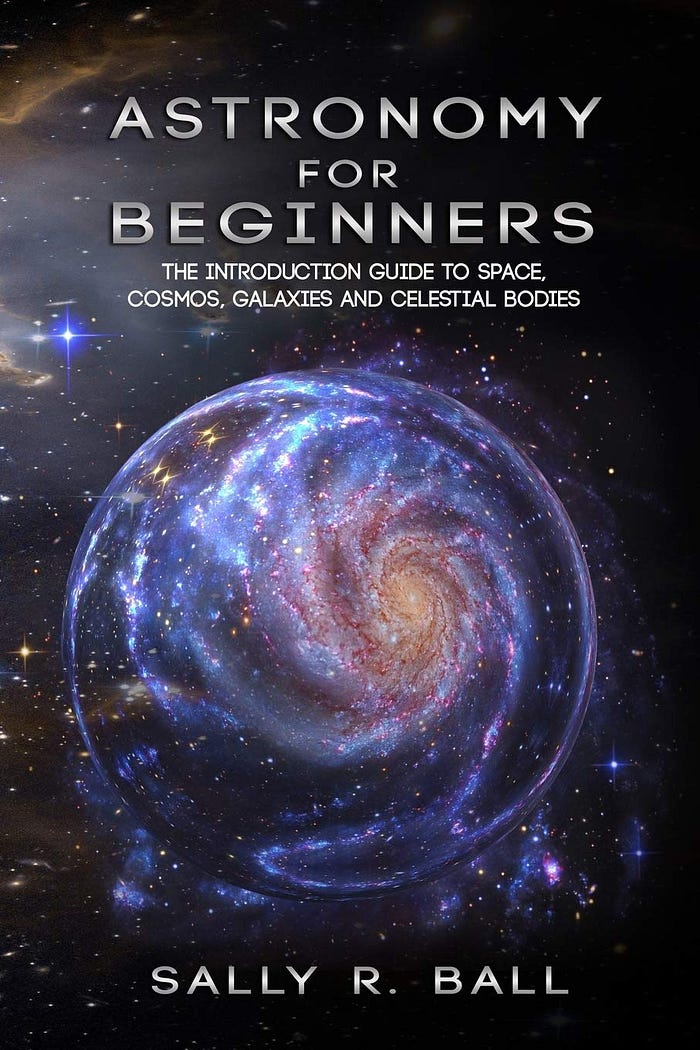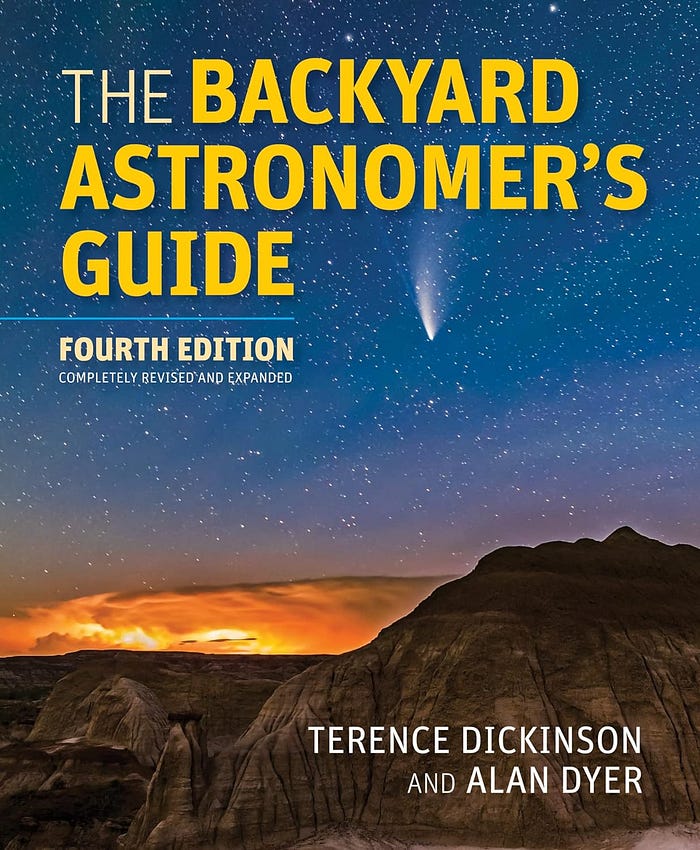5 Best Astronomy Books for Beginners: Start Your Astronomy Journey
Do you need good recommendations for beginner astronomy books?

Astronomy is a big field with numerous publications, articles, and, more importantly, books. One thing that’s good about all these publications is that astronomy and cosmology are some of the things that authors have tried to show and teach everyone. At some point, all of us were also interested in astronomy. If you are interested and want to get started, what are the best astronomy books for beginners?
There are too many options to include in one article. But personally, I read a few of them when I was starting my journey to astronomy. There are certain things to look for when you are looking for astronomy books for beginners. Mainly its language and the complexity level of it. The ones with too much detail are generally not the best astronomy books for beginners. They tend to be made for a rather more experienced audience.
But there are ones that aim to teach astronomy with a simpler language while still capturing the idea. There are a lot of them, actually. I have the five best astronomy books for beginners to get you started on this list. They are an extremely short list of a library of thousands of astronomy books.
Disclaimer: I am a participant in the Amazon Services LLC Associates Program, an affiliate advertising program designed to provide a means for sites to earn advertising fees by advertising and linking to Amazon.com. This post contains reference links.

This book shows how beginner-friendly it is from its name, and I totally approve of that. William Waller does not just talk about astronomy and how things work. He starts from the very beginning with how we discovered things and how our understanding has evolved from day one. It’s sort of a history and astronomy book mixed.
What’s better is that he does all these with easy-to-understand language. As I said, an astronomy book for beginners should use an easy language, not a complex one. William hits that on the spot. It’s also only 270 pages, so it’s quite short and easy to digest.
In addition, William didn’t forget to add some nice visuals, making it easier to understand a complex concept, for example, black holes. All the details about the cosmos, planets, galaxies, stars, black holes, and others are introduced in this easy-to-read astronomy book for beginners.
Pros
Cons

Another book that gives away that it’s an astronomy book for beginners from its title. I have to say, this is also not wrong, as it is a great book with an awesome overall coverage of astronomy. The difference with the first one, though, is that this book doesn’t go about its history too much.
It tries to help the audience understand how the cosmos works, from our solar system to constellations, the categorization of celestial bodies, and how we use things in the cosmos for our advantage here on Earth.
It doesn’t cover the entire astronomical journey, but it does show you how things are used, how we can see them with the naked eye, and explains some important things like the disciplines of astronomy.
Pros
Cons
- Some of the information feels confusing and not well-organized like it’s not very easy to read.
- The writing can be a bit too direct and without personality.
- It’s only 87 pages. It’s not comprehensive at all.
- Some readers said that there are spelling and grammar errors.

This one is quite different from the first two or from most of the beginner astronomy books. Backyard Astronomer’s Guide, as the name suggests, is sort of a guide to astronomy. It talks about almost everything from the use of telescopes to what to look for when you are looking at the skies.
Backyard Astronomer’s Guide is sort of a practical astronomy book where it teaches you how to see rather than acting a textbook. That’s why if you are interested in taking things into your own hands, looking at the stars on your own, and understanding what they mean, this book is for you.
Otherwise, I don’t recommend this book as much as I do others. Although I have to say, it’s still a great read. It can teach you a lot about what you see with the naked eye on a nice night.
Pros
Cons

You can’t seriously have a guide about astronomy books for beginners without a Stephen Hawking book. This book by Stephen Hawking, among others, is a landmark in science writing by far. The way he tells the stories and explains the complex topics is just phenomenal.
I read this book during my first time reading astronomy, and it just left me wanting more and more. In the book, Stephen Hawking explains the universe from the very beginning, the Big Bang. He then takes the journey to our present day, goes further, and makes his assumptions about the future.
Millions and billions of years from now, you can see how we envision the universe will look. Of course, these are not just his visions; they are backed by our currently known mathematical formulas and theories. Great book, by all means.
Pros
Cons

Another milestone in cosmology and astronomy writing is Carl Sagan and his books. Cosmos probably started it all with its amazing explanations and storytelling, though. In the book, Sagan explores the vastness of the universe and the wonders of space.
He takes the readers on a journey through 15 billion years of cosmic evolution, from the Big Bang to the development of science and civilization. Sagan discusses the origins of knowledge and the scientific method, inviting readers to question their own existence and explore the mysteries of the universe.
Sagan’s ability to explain complex scientific concepts in user-friendly language makes the book one of the best astronomy books for beginners to read. “Cosmos” also delves into the evolution of life on Earth, from the early stages of life to the emergence of human civilization.
Pros
Cons
What to Look for in Beginner Astronomy Books
I’ve given you five suggestions, but as I also said before, there are hundreds, if not thousands, of beginner astronomy books out there. You will probably want to read more than five, or you will want to explore new things in and around the world of astronomy and cosmology. You should know what to look for.
- Make sure that it’s not mathematical. Astronomy books can get extremely mathematical, making them impossible to read for beginners.
- Check how long the book is. Ideally, a beginner’s astronomy book should be about 200 to a maximum of 500 pages.
- Sometimes, they focus on one thing in the world of astronomy. Check if you are interested in that particular topic.
- Make sure to look for books that use easy-to-read languages. Some authors, like Stephen Hawking, Carl Sagan, and Sabine Hossenfelder, do a great job of doing this.
Originally published at https://astronomyexplained.com on February 26, 2024.
